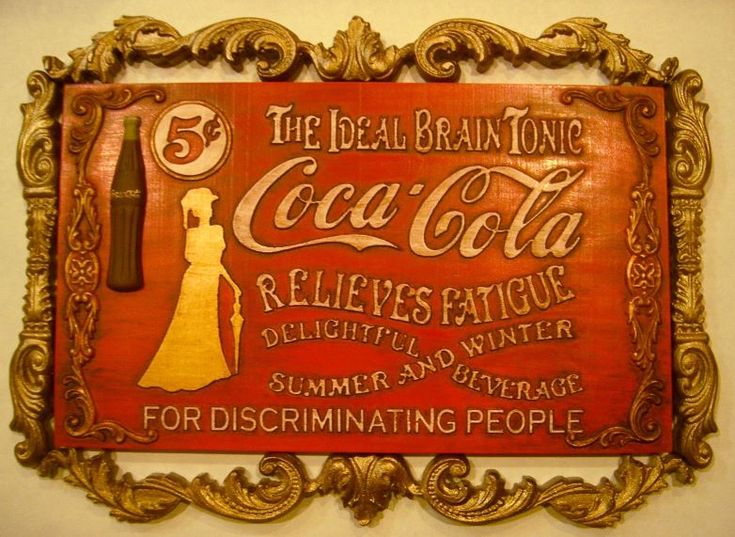
We all know that sweetened, carbonated soft drinks have effects on those who drink them. The most conspicuous, among especially avid consumers, include obesity and its associated health troubles. This, fair to say, was not the intention of John Stith Pemberton, the Georgia pharmacist who in the 1880s came up with the drink that would become Coca-Cola. In that era, writes Smithsonian.com’s Kat Eschner, “people overwhelmed by industrialization and urbanization as well as the holdover of the Civil War and other social changes struggled to gain purchase, turning to patent medicines for cures that doctors couldn’t provide.” And it was in a patent medicine, one of the countless many dubiously ballyhooed in the nineteenth century, that Coca-Cola first appeared.
Injured in the Civil War, Pemberton developed a morphine addiction for which he fruitlessly sought treatment. But then he got word of a new substance with the potential to cure his “morphinism”: cocaine. At the time, cocaine was an ingredient in a wine-based beverage enjoyed by Parisians called Vin Mariani.
“It actually made people feel great, and it was sold as medicine,” writes Eschner. “Combining cocaine and alcohol produces another chemical more potent than what’s normally found in cocaine, enhancing the high.” Adapting Vin Mariani for his own local market, Pemberton introduced what he called “French Wine Coca”: a treatment, as he promoted it, for everything from dyspepsia to neurasthenia to constipation, as well as a “most wonderful invigorator of the sexual organs.”
Coca-Cola carries many associations today, few of them having to do with the life of the mind. Yet it was to upper-class intellectuals, their minds disordered by the rapid development of nineteenth-century America, that Pemberton promoted his invention. It would be called “a valuable Brain Tonic, and a cure for all nervous affections.” Its supposed mental benefits became the main selling point in 1886, when temperance laws in Atlanta prompted a re-engineering of the formula. Even the non-alcoholic version contained “the valuable TONIC and NERVE STIMULANT properties of the Coca plant and Cola nuts,” as advertisements put it, but in the early decades of the twentieth century (long after Pemberton’s death in 1888, by which time he’d sold off his rights to the drink), the Coca-Cola Company phased that ingredient out. If it weren’t illegal, a cocaine-fortified soft drink would now benefit from the retro appeal of the eighties — the eighteen-eighties and nineteen-eighties alike.
Related content:
Do You Drink Soda, Pop or Soft Drinks?: 122 Heatmaps Visualize How People Talk in America
“Soda/Pop/Coke,” A Creative Visual Remix of Harvard’s Famous 2003 Survey of American Dialects
“The Virtues of Coffee” Explained in 1690 Ad: The Cure for Lethargy, Scurvy, Dropsy, Gout & More
The Birth of Espresso: The Story Behind the Coffee Shots That Fuel Modern Life
Discover the Oldest Beer Recipe in History From Ancient Sumeria, 1800 B.C.
Based in Seoul, Colin Marshall writes and broadcasts on cities, language, and culture. His projects include the Substack newsletter Books on Cities, the book The Stateless City: a Walk through 21st-Century Los Angeles and the video series The City in Cinema. Follow him on Twitter at @colinmarshall, on Facebook, or on Instagram.


Leave a Reply